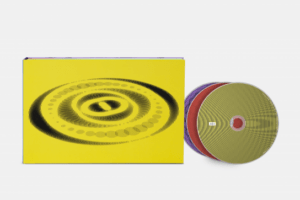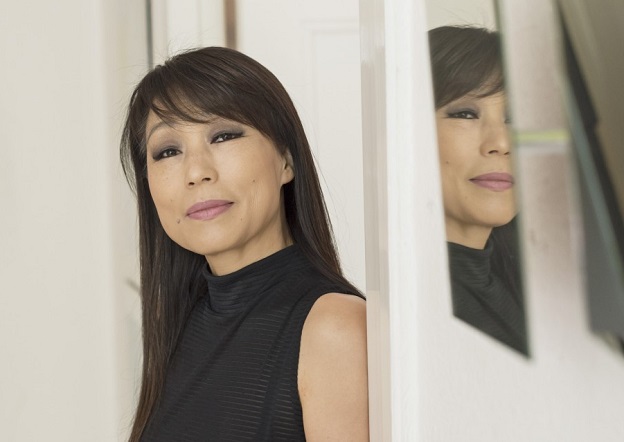Firmly rooted in Western musical culture, she has always maintained a link with the musical tradition of her country of origin, also drawing inspiration from other musical latitudes and from extra-musical artistic and cultural universes.
Your writing happens on paper, giving up the possibility offered by the computer to edit your scores, which are clean but at the same time creative, works of art in themselves. Is your writing always linear, without second thoughts?
I always compose at my desk, without a computer or a keyboard. I never play the notes I write on the staff. I was brought up this way: it’s my habit and it’s the only way I can compose. Creating a piece is a job where I have to make many decisions on many different levels, including the entire context, focusing less on the sound of each individual note. This process takes a lot of time, also because I make sketches first. And, of course, it’s always possible that I’ll have relapses or second thoughts, or that I’ll throw away some material and start over again.
 So, even though your childhood dream was to become a concert pianist, you do not develop your musical ideas on the piano. Do you still play it every now and then?
So, even though your childhood dream was to become a concert pianist, you do not develop your musical ideas on the piano. Do you still play it every now and then?
Of course, I love practicing different repertoire, from Bach to Messiaen and beyond. It’s a great experience for me, and an excellent and fruitful contrast. with the difficult process of composition. But for me composing is a process that takes place entirely in my mind.
One of the characteristics of your writing is to push the expressive possibilities of the instruments to the limits. During the study and rehearsal phases of your works, how important is direct interaction with the musicians? Or do your scores already say everything for you?
During the composition process, I rarely work with performers; I trust them and they trust me. I have great respect for brilliant performers: it is wonderful, and it is also fascinating to listen to the different interpretations that can arise from the same score. In addition, performers, with their interpretative art, manage to find something that I had not thought of in the composition phase.
The interpretation of your music is an all-encompassing experience, often requiring physical involvement….
I am obsessed with the virtuosity and performative energy that is created when a musician pushes his technical and expressive possibilities to the limit.
You trained first in Korea and then in Europe, particularly in Germany, finding your most solid compositional roots in Western classical music. However, is there any connection with your country of origin and traditional culture in your music?
I have been living in Germany for almost 30 years now, but I have a connection to South Korea, of course, and have worked in many countries around the world. My homeland is the cradle of classical music, but I am also curious about other genres and phenomena, including traditional ethnic music from different countries. This results in a mixed identity, or rather, multiple identities. As for references to traditional Korean music in my work, I have drawn inspiration from it in some of my works: in Akrostichon-Wortspiel or in Gougal ōn and, of course, in Su for sheng and orchestra, which is also written for a traditional Asian instrument, the incredible Chinese mouth organ, which I had been introduced to as a child. Su was my first piece that focused on a non-European instrument. Although I have written a lot for percussion instruments outside the European tradition, and this continues to interest me, I believe that the danger of slipping into mere exoticism must be avoided at all costs.
Which composers of the past have had the greatest influence on your education and have inspired you in your career as a composer?
It’s hard to say. I was educated in the so-called Western classical music, with a focus on contemporary modern styles, but I can’t pinpoint a specific composer as a reference in my education. I try to keep my finger on the pulse of the present as much as possible, but the tradition from the Renaissance to the present day has also been fundamental to me. But musical influences can come from very different sources, both from the entire Western tradition and from traditional non-European musical cultures. Even if you are rooted in a specific culture, it develops further with this kind of interaction. And of course there are many influences outside of music: my recent works have been influenced by sources ranging from physics and cosmology to street art and pantomime, and of course literature.
Would you like to give us a memory of your master György Ligeti? What was his greatest teaching, musical or human?
What you learned in Ligeti’s courses was to think independently. Ligeti’s classes were completely unconventional: they analyzed new music (with a particular predilection for outsiders), jazz, non-European traditional music, Renaissance music, Mozart, even rock music, and talked about literature and natural sciences. He was a rigorous teacher, but his approach was quite universal and open. I learned from him that it is possible to create something new without turning your back on tradition, and I learned from him how important it is to be self-critical, and never start copying yourself. It was a tough school, and I even stopped composing for two and a half years after his courses, even turning down offers from publishers, but in hindsight it was the right thing to do.
Do you believe that a composer today can express himself in total freedom or must he pay a price to tradition? And do you feel totally free from any musical scheme or dogma of the past?
You can’t be free even if you want to be, but knowing the history of music you can do your best to try to write original music, avoiding unintentionally copying yourself or others.
According to what criterion do you so skillfully mix electronic music and even elements of musique concrete without giving up traditional instruments?
I have made several works of electronic music and this has influenced my compositional thinking even when I write for traditional instruments. But it has never been my goal to compose mainly electroacoustic music, although it is a fascinating world and electroacoustic music studies are very important for musical creation. First of all, the sound of electronic music does not have the same nobility as the sound of traditional instruments, especially when the latter are played by excellent performers. Secondly, the result of this kind of research provides either a recording to be reproduced during performance — previously it was an audio cassette, today it is a CD — or a collection of material in digital form on the hard disk of a computer: none of these materials are designed for eternity. From the beginning, therefore, I wanted to draw on the empirical knowledge of studio research and apply it to acoustic instruments. Working in the studio, however, has allowed me to significantly broaden the basis of my music. In the studio you can look, like with a microscope, into the inside of the sound, at the molecular level, so to speak, and make many interesting discoveries. These discoveries have, from time to time, influenced my non-electronic works.























